In difficult times like this, we need leaders to look up to, not just titans of business but true spiritual leaders. My guest for this episode, Dr. Sean Stephenson, was one of those larger than life people. Sadly, he passed away last year, about six months after this interview.
I got to know Sean through Joe Polish’s mastermind, Genius Network, which we were both a part of. I’m very grateful to have met Sean in person. He was the kind of guy who lit up the room with his smile, his self-deprecating humor, and his pearls of wisdom. Sean was the living proof that the mind is a powerful weapon against adversity. Sean reminded me, in fact, of Viktor Frankl, another inspirational figure, whose work proved that striving for meaning is what keeps us alive through unspeakable tragedy.
Sean was 40 years old, which was 40 years longer of a life span than doctors originally predicted. He was born with osteogenesis imperfecta, a rare bone disorder that made his bones very fragile and stunted his growth. By the time he was 18, he had fractured his bones over 200 times. Despite this, Sean overcame such challenges to become an incredible speaker, inspiring millions, appearing on Oprah, and sharing the stage with US presidents and the Dalai Lama.
This interview originally aired on my other show, Get Yourself Optimized, and I publish it here, not only to inspire you to be a better human, while you are being a better marketer, but also as a tribute to an incredible soul who inspired me and countless others. In this episode, Sean and I discussed everything from the benefits of having entrepreneurial parents to self-care and attracting wealth. Listen in as a 3-foot tall man teaches us a thing or two about walking tall.
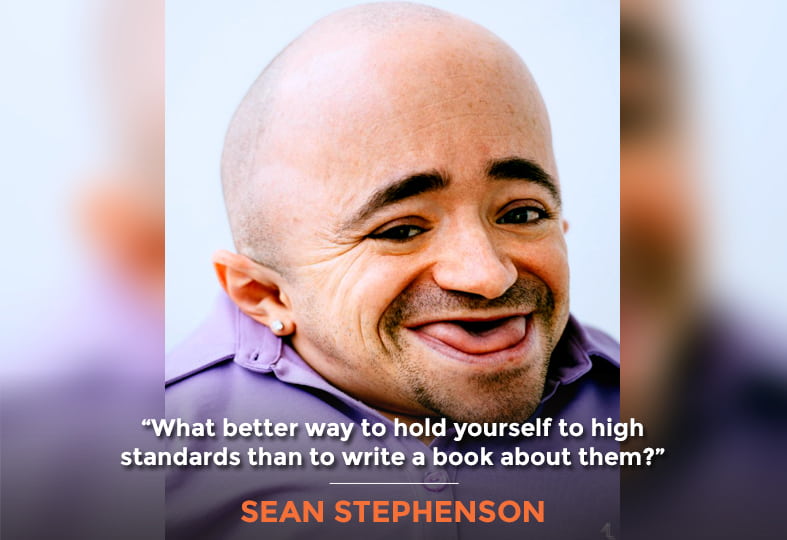
In this Episode
- [00:29] – Stephan talked about Dr. Sean Stephenson’s credits and accomplishments.
- [03:57] – Sean shared how he turns his Shiny Object Syndrome into one of his biggest assets.
- [10:08] – According to Sean, there are two sets of employee values: their personal ones and the company’s.
- [14:50] – Sean shared an interesting story of how he and Joe Polish become close friends.
- [20:02] – Stephan demonstrated the two concepts of sharing in Kabbalah which were reactive sharing and proactive sharing.
- [25:52] – Sean shared his darkest moments that brought him the most significant gifts.
- [33:50] – Sean shared how he felt about his physical appearance and why he saw his container as a huge part of his mission in life.
- [39:26] – Sean on being skeptical at first with Abraham Hicks’ content but ended up agreeing and feeling an alignment with his beliefs.
- [47:14] – Sean recommended his favorite approach for meditation, how he sees money and his opinion about forgiveness.
- [53:39] – Go check out Sean’s book, Get Off Your But.
Transcript
Sean, it’s great to have you on the show.
Thank you.
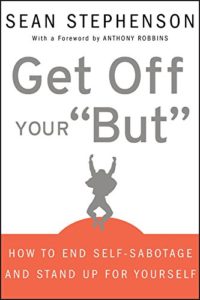
What was the impetus for you to write the book, Get Off Your “But”?
I knew that I couldn’t be everywhere at all times, therefore I needed to put my message into a format that could clone me and get me out in the world, get the message and hand it to people that I might never meet in person. I also knew that I wanted to create a legacy of work that would outlive me and God willing, that book continues long after I’m gone. It was also just a piece that I wrote because I wanted to stop making excuses myself. I thought, “What better way to hold yourself to high standards than to write a book about it?”
What have been some of your excuses?
In so many areas. We teach what we most want to learn. I’ve held myself back in business. I didn’t grow up with hardcore entrepreneurial parents. They didn’t pass anything along to me in starting a business and I used that as an excuse. I’ve used the excuse at times that it’s just too hard to stick with something and that my attention is always going to a newer, shinier object. I’m not built for consistency. The excuses are deadliest when they’re accurate.
I can relate to having shiny object syndrome. What was your big epiphany or breakthrough around your shiny objects and getting past that and actually having that be an asset that you are able to find so many different opportunities?
I would be lying if I said I have overcome it. I still face it, but having a team built around you that you can leverage yourself and pass things off to somebody else who likes to take the next steps, that helps a lot. Also, just forgiving myself for being that way. There’s a lot that goes into life that’s not discussed and one of them is the acceptance that some people are so good at locking themselves into a room and staying focused for hours and other people are not. I am not one of those people, to set myself up to not feel like a failure for the way my brain works like a pinball machine because I’m also capable. That gives me strength because I’m open to trying a lot of new things. There are a lot of people on this planet roaming the Earth that struggle with change and new things. They want to keep everything the way it was, and I’m not that way. It would drive my wife nuts, but I could live in a new home every two years. I could live in a new part of the world every few years. I could start over and rebuild new friendships every few years. I could even start over careers every few years. I love trying new things. I love seeing if I can do something. That is a greater advantage to being a renaissance man, having lots of different skill sets.
What better way to hold yourself to high standards than to write a book about them? Share on XTony Robbins said that the most powerful part of our personality is our need to be consistent with our identity. If part of your identity is to be all over the place, scattered, unfocused or whatever those negative, disempowering beliefs are, then you set yourself up for failure. Your brain in the background is constantly looking for opportunities to reinforce that disempowering belief and it’s “truth.” One thing that was helpful for me, and maybe this will be helpful for you because I have so many different things that I’m working on and thinking about at the same time, I do like to task switch constantly. It’s not even multitasking, it’s task switching and multitasking doesn’t even exist. It’s not a real thing. You’re task-switching all the time.
The most powerful part of our personality is our need to be consistent with our identity.
The identity shift I had was going from like, “I must have ADD or ADHD or something,” even though I’ve never been tested to seeing myself as a spotter. This is something I’d never heard of before, but my friend, Amy Africa, told me about this. There were hunters, gatherers but there was a third type of person in the tribes back in those prehistoric days. Those were the spotters. They kept the tribe alive because the spotters would be very alert to dwindling resources or the herds on the move. They will be the first to spot that that’s happening. The people that we label as ADD, they don’t have a disease, they are wired to be spotters, to save the tribe from impending doom. That’s us. Once I identified as a spotter instead of scattered or ADD, that opened up so much opportunity and I was able to thrive in that environment. I don’t know if that’s helpful for you, but I thought I’d share that.
You talked about having a team and they come in and fill the gaps for you. How do you find these team members and the fit? I know there are different assessments and tools that will help you identify where your gaps are like the Kolbe A Assessment, StrengthsFinder, DiSC. You can test your staff and candidates that you’re looking to maybe hire and then see where the right fit is. If you’re a quick start in Kolbe and you need somebody to come in and finish things for you, you have them take the Kolbe Assessment as well and see how they are with that aspect. What do you do?
The HR person should be aware that strengths line up with the roles.
I have used Enneagram, which is a less popular, less widely-known name than the ones that you mentioned. We use Enneagram in our company. When it comes to finding the right person, I’m not the one who finds them. When I would hire people, when I was in charge of HR, I would hire people I liked. That’s a problem because I liked them and it’s not that they were best equipped. The people in our company that are actually good are not necessarily people I would have hired. Not that I don’t care about them, I do but they wouldn’t necessarily be people I would go out and have dinner with on my own because our personalities are different. I enjoy everybody in our company, but everybody’s got their personalities based on their roles. I’m definitely more of an entertainer in our company. I am the socializer. I have people around me that are very one-track mind, but I need them on their case completing projects. It really comes down to making sure that the HR person is aware that the strengths line up with the roles.
What’s that structure look like? The strengths line up with the roles. I’m guessing maybe the values would line up with the roles so you find out what their highest values are and make sure that those are in alignment as well.
These are questions for the people doing the hiring more than me. This is why I stepped away from it. I’m not even quite sure what they do. For me, there are two separate values. There are the values that people have personally. Then there’s the overall company values and making sure that everybody’s in alignment with the company values. If somebody can’t live up to the company value, then they’re just not a good fit. I’m more of an entertainer. I’ve been a professional speaker for 24 years, and when I was putting more of a management hiring position, I struggled. Even at the executive level of delegation, I’m not the strongest. I give people way too much benefit of the doubt. I would let somebody make more mistakes than would be necessary for a company.

I have somebody in the role of a CEO that is far more driven by rules, goals, and structure than I ever have been. My gifts, strengths, and skills lie inside the realm of rapport and connection and getting people to open up and share vulnerabilities and to share my vulnerabilities. It’s very hard to be in a position where you need to make really tough decisions to let people go or go a new direction if you’re the sentimental one that wants to make sure everybody’s feeling good. It took me a long while. I was in business for 22 years before I finally admitted that I shouldn’t be the CEO of my own company. That took a hit to my ego, but it was a beneficial decision.
That’s a big decision to make, to step down and be the Founder and the cheerleader but not the CEO of your own company. I had a CEO myself for a while. It’s the previous company that I founded and eventually sold. Sometimes it works out and sometimes it doesn’t. There were some rocky points there. Did you have any run-ins with your CEO or you did not agree with their decision or their direction and you had to duke it out?
I don’t need to micromanage things that I don’t care about.
No, I was actually quite the opposite. I had incredible trust and faith that this was the right person. Their decision-making has always been stronger than mine in terms of the business rules that is. They supported my strengths and I supported theirs. It was less of a duke-it-out, tug-of-war battle than most people probably would experience. I’m somebody that if I’m in my wheelhouse and I’m doing what I love to do, I don’t need to micromanage things that I don’t care about.
Many people work on this stuff. That’s their weakness because they believe they need to shore those up. They should really only be focused on their strengths and working in their zone of genius or in their gift.
That is why Dan Sullivan has had such a positive impact on my life through Strategic Coach because Dan’s all about, “You can spend your whole life trying to improve a D to a C for what? What benefit is that going to help you compared to take your A’s to A+’s and put all your energy and your focus in your strengths?”
How long have you been learning from Dan Sullivan?
I’ve been learning from Dan for probably close to four or five years now.
He’s awesome. Did you get to know him through Genius Network?
Yes, through Joe and through Genius Network. I have since befriended him and Babs. I’ve lived in Chicago for a long while and they have a home there. I would go to their homes for dinner and very fortunate to actually know them as people and not just mentors.
Let’s talk about Joe. How did you end up meeting Joe and how did that relationship blossom?
I met Joe through Eben Pagan. I was at Eben’s original pilot course in building a business called Altitude. He invited probably close to 100 of his closest colleagues and business friends. Joe was one of those and I was one of those people. I went to lunch and Joe is seated to my right. Joe had been getting endless playful grief to Eben throughout the course of the Altitude program. I just thought, “Who is this knucklehead?” I don’t even know if I like him. Then I went to lunch and he was very sincere at lunch and he gave me his business card. He said, “If you ever need anything, let me know.” My book, Get Off Your “But” came out. I thought, “I know he has a podcast, maybe I can be on his podcast.”
In so many areas, we teach what we most want to learn. Share on XI reached out to him and said, “Remember having lunch with me? I would love it and be honored if you would be willing to interview me for my book release.” He came to Chicago, interviewed me, we had a two-and-a-half-hour interview, then he hired me to work with him on a project and he started hiring me to start speaking to his different groups. One thing led to another. I finally joined his group and then I moved to Arizona partially to be closer to him and we hang out all the time. We traveled on vacation together. We’ve been through the darkest periods together. He sat with me in hospitals. We’ve held each other through times when we were both sobbing from personal pain and loss. He’s genuinely one of my closest friends and one of the biggest influences on my way of being.
How long have you known him for now?
Close to fourteen years.
Do you have any joint venture type of businesses together?
I find that sometimes partnerships are the only ships that don’t sail.
No, I have never done specific joint ventures with him but I promote his stuff and he promoted mine. He’s hired me and I hired him. We definitely exchange money quite a bit over the years and we’ve never gone into a partnership together. I’m very particular about partnerships. I find that, not always, but sometimes partnerships are the only ships that don’t sail. I’ve had some interesting experiences with partnerships over the years and found that sometimes it’s best to just coexist and make money and not necessarily partner up and create a business together because if people have different objectives years later, it really ruins the connection.
It is a marriage of sorts and if you’re not in complete alignment, things can go really wrong. Have you heard of the concept that money is energy? What are your thoughts about that? You talked about how you and Joe exchange money through him hiring you, you hiring him, and promoting each other’s products and services and stuff. What are your thoughts?

I definitely know that everything is energy and so is money. I find that when money is flowing, it brings levity. When money is backed up, it brings a heaviness. I find that money amplifies our way of being. If we are up to no good, money gives us more of a way of being up to no good. I see money as energy. I’m always studying about not just the strategies and the concepts of business from a practical standpoint and tactical, but also from the energy perspective and what am I holding onto that is damaging my finances. Napoleon Hill talks about that sexual energy is connected to money as well. It’s important in our marriage that my wife and I be on the same page, romantically and intimately. That has an impact on my finances and how we flow things through our life. I’m actually quite a woo-woo person behind closed doors. I don’t lead with it because I feel sometimes people get lost in that and that’s all they see. It becomes a hammer and everything becomes a nail. For the most part, I run a lot of things through the question of, “Is this flowing abundantly or is this holding on through scarcity?”
We’re both aligned in that regard. The way I see money as energy and everything is energy. For example, if you give money to a homeless person. I actually learned this concept in Kabbalah. I take Kabbalah classes. Let’s say that you hand $5 to a homeless person. If that person uses the money for themselves, the flow of that energy stops. It’s for themselves alone. That’s not keeping the energy in motion, so that’s a blockage. Not that you shouldn’t donate or give money to homeless people, but when you do that exclusively and you don’t give to organizations that help the homeless people and the environment and whatever other causes you care about, that keeps the money in motion. That keeps that energy flowing. That’s important in Kabbalistic way to your own spiritual development.
Another thing that I learned that is quite powerful when you hand that $5 bill to a homeless person and you expect a positive reaction probably from that homeless person, you are robbing yourself of the spiritual blessings that could have come by just having no expectations. If that homeless person spits in your face and like, “How dare you give me $5. You probably have $20 in your wallet that you’re not giving me,” and then you get upset and your ego is bruised because you had these expectations, that’s a very different way of giving. That’s called reactive sharing versus proactive sharing is, “I don’t have any expectations. I don’t want anything from this homeless person. In fact, if they react negatively, I’m totally cool with that because I’m expecting the blessings to come from the Creator.”

Give and expect nothing in return.
I remember years ago, I was in Chicago where I was living at the time and it was cold out. This girl was playing the violin with her violin case open. It might have been at Christmas time, I don’t know but I felt called to put $100 in the violin case. I can feel the struggle going on between my heart and my ego. My ego wanted to look back when the girl looked down at her violin case when she saw that I dropped $100 in. My heart was like, “Just keep walking, do not look back.” That’s very much the same concept. Give and expect back nothing. Giving is character development. It’s the gift that you give yourself knowing that you took the high road, that you cared about another human being without needing their approval, without needing even their admiration. You give it because you know it’s the right thing to do. That’s hard for humans. I will say that I would rather the ego be used for positive purposes though. If somebody gets a great amount of appreciation for donating millions of dollars to build a wing of a hospital and they get their name on it and they feel amazing about that, is that the most spiritually clean, highest value? Probably not, but I’d rather they give you that than sink it into something that wasn’t going to continue to have value to the planet. I do see a little bit of both sides.
Let’s talk about ego because I used to think of ego as something to fight against or something that was an overall negative.
Ryan Holiday says, “Ego is the enemy.”
I got this epiphany that the ego is actually a creation of the Creator and it’s for our benefit. It’s something that we can push against. When we don’t have contrast, if it’s all sunshine and rainbows and it’s never stormy and dark, we don’t appreciate the blessings, the beauty, and the gifts. We just expect it. We need the contrast. Our ego provides contrasts because we have something to push against. I’m grateful for my ego and I challenge myself all the time to keep it in check and to be aware of the larger reality, the 99% reality and not just the 1% of the physical like, “I’ve got to pay the bills and I’ve got to make sure that my projects are going to finish on time,” and all that stuff.
I am grateful for the ego; it’s allowing me to learn constantly.
I look at it this way. Your ego, in my opinion, will be with you as long as you’re alive. The purpose of life is to learn things while you’re here with it. When we’re pure positive energy, when we’re spirit, the ego dies with the body. This is my opinion. You’ve learned what you needed to learn while you were here. I am grateful for the ego as well. It’s allowing me to constantly learn. I can tell you that when I look back on my life, the things that my ego really pushed me to do oftentimes turned out to be miserable at first or at some point miserable. Then what I learned from that became my greatest gifts, it is the contrast. It is dark and light. It is the night and the day, the hot and the cold.
What have been the darkest moments for you that have brought you the biggest gifts?
Times where I have let people down by not coming through on the promises that I made them. The darkest moments are always the times where I feel like I caused another human being pain because of my actions, my activities, my words, things that later I think to myself like, “How did I do that? Why did I do that? Where did that come from?” You can always trace it to pain. The hurt and the healed heal. The dark moments were always times where I was selfish and not in a positive sense of the word, like self-focused, I mean straight-up selfish like, “I’m going to get mine. Forget how other people are going to feel about this.” Those are the dark moments, things that I’ve done in business, in my marriage, with my friends at times and I just went back.
When I felt the most broken is when I broke things the most.
When you’re in a good state and you’re in high vibration and you’re feeling great, you look back on those stupid decisions. You’re like, “How did I make that decision?” The reason why it seems so impossible that you made that is because you’re not looking back from the person you were that made that decision. You’re looking back from the person on the other side. You’re looking back from the person that now has the wisdom. You’re looking back from the person that now has the outcome. You’re looking back from the person that has now learned the lesson. It seems unfathomable because you can’t easily dial up for the personality, the belief structure and the emotions that you were at when you made that decision. When I felt the most broken is when I broke things the most. I’ve had times where things got out of hand in relationships where I said things and did things that hurt people’s feelings.
That created the scenarios where it wasn’t my highest good. It really caused waves and some were repairable, not all of them. They all were the result of me not taking good care of myself when I let my self-care rituals wane and I stopped focusing on my health and my own mental well-being. That’s when I started to seek gratification and validation. Those were the times that I made the dumbest decisions. I know that when I take great care of myself mentally, emotionally, spiritually, physically, intellectually, I have no desire to feel the lack. I have no impulse to want to take or to hurt. When I am out of control with my self-care and all I want is an instantly gratifying experience, that’s when I do things from a place that I always regretted.
Everything is energy, and so is money. Share on XThat coincides with the principle I learned in Kabbalah called restriction. When you restrict, you reveal all this light and your beacon of light and hope. You change the field around you, you change everybody around you by restricting. That means saying no to things that are bad for you. Ultimately saying yes to things that are good for you but are hard to be disciplined about. That inspires others to restrict in those same ways. Self-care aligns perfectly with restriction. Also avoiding the impulsive stuff that’s just a short-term pleasure, but a long-term loss or something that actually ends up hurting somebody else to your short-term benefit. Have you heard that concept of restriction before?
I have and I feel from my own life that if I can get exercise and meditate every day, it doesn’t matter what else happens, I make good choices. When I don’t exercise and meditate, the odds go up in the bad choice decision-making category.

I was in the audience in the Genius Network annual event. You shared with hundreds of people what your exercise regimen looks like. I was so inspired by that. I’ve started going back to the gym now. I want to be a force for good and it’s harder to be a force for good when you don’t take care of yourself because you’ve got to feed your own vessel so that vessel can grow and expand. Do you want to share with our audience what some of your exercise regimens look like?
I have a home gym that we built based on my size and my physical capabilities. There are certain things that would make no sense for anybody else to use it, but it works for me. They don’t make weight machines in my size, so I went out and found things that I could customize it to my size. I have pulleys and sandbags to my size. I have air pumps. They’re like foot pumps, but the amount of pressure that they push back, it simulates almost like a Bowflex type machine. I can continue to reconfigure the different ways that I use that so I can get different muscle groups. I have small hand weights, medicine ball, so many yoga blocks. I do my best to either do a HIIT, High-Intensity Interval Training, anywhere from ten to 30 minutes where it’s like 45 seconds on, whatever the activity is, ten-second break, 45 seconds on, ten-second break. Then do five activities that then repeat three times. That’s the majority of my workouts lately. I’ve done things such as set challenges to do 1,000 sit-ups in a day for a while. I can plank for five minutes now. I’ve built up my endurance to handle that.
A good workout entails 20 to 30 minutes of stretching for me. I will strap weights to my legs and jog in place on my back, swimming when the weather is conducive for that. I have a stationary hand bike that I use for cardio. I’ll go in sprints and anything I can do that gets that heart rate up, builds the muscle fibers by breaking things down and just keeps me in a zone of appreciating my body. Being three feet tall and in a wheelchair, there’s a lot my body won’t allow me to do. Trying to figure out my range of motion and maximizing that has made all the difference. When I’m physically taking care of myself, I don’t really think about my disability that much because I feel strong. I feel that I’m the captain of my own ship and then I’m charting a fun course in this body. I much prefer to be in a wheelchair than somebody who is morbidly obese, painfully out of shape, winded getting out off the couch. That to me is far more debilitating than my own container.

If you had the opportunity to redo your life and to choose a different body, let’s say end up six feet tall or whatever and very muscular and have all sorts of capabilities. Would you choose that or do you think that your current incarnation with its limitations is actually a huge gift? This time around, would you do it differently if you could?
I feel like my container is a part of my mission and I personally believe that about everyone. You’re not randomly put into your container in my opinion. Your container was chosen for your mission. It’s clear to me LeBron James or Michael Jordan, their container was a part of their mission. It’s the same with mine. My mission is not to dunk a basketball. My mission is to wheel onto a stage, to get people’s attention and to speak truth into their heart in a way that they would listen to me more clearly about the topic of insecurity than somebody who looked like a LeBron James or a Michael Jordan. My container is filled with all kinds of gifts. I appreciate that I am little. I appreciate that there are things that I never have to struggle with because I’m little. If you’re going to have a disability, it’s easier to be little and carried by people easily than to be big for the disability. That’s much more challenging in my opinion. If I had to trade it, I wouldn’t in this lifetime because I built up an awareness of how to maximize this container. If I were to pass away and start over on another mission, I would definitely be down with trying a new body.
Your container was chosen for your mission.
I do believe in past lives. I do believe that I’ve been in a lot of different physical forms on this planet. I chose this one for a reason. It would be fascinating to come back as a woman and see what it’s like to bring life onto the planet. Everybody’s got something to their container, if not many things that are super miraculous and amazing. If they’re not focused on that, you’re just looking at what you can’t do, it’s frustrating. If I gifted you a Lamborghini and you got pissed off because it can’t go off-road, it can’t go up a mountainside. You’re looking not at what it was built to do. If you’re pissed that I gave you a semi-truck and you’re mad that it can explode off the line in a drag race, then you’re not looking at what it can do. Every container in that metaphor, every vehicle is equipped to do something different.
A therapist I knew told me this bit of wisdom, which is if you’re looking for warts, all you’re going to find are warts. The container you’re in, your vessel and any limitations that you have are also opportunities. They are gifts. Maybe the bow is on the bottom, as my wife likes to say, but the gift is there, you’re just not seeing it yet. I remember you saying on stage that if you were not three-foot-tall and in a wheelchair, people would not listen to you as much and you would not have as much of an impact on the world. That struck me.
The basis was if I looked like you, you couldn’t hear me the same way. If I looked like you, you would think, “What new information do you have to bring to me? You look just like me.” Whereas because I look so radically different and I’m speaking on such intense topics that most people in my container may not feel comfortable to talk about, you’re going to perk up. You’re going to listen. You’re going to say, “This message does not necessarily match this container. This is bold. This is courageous. I want to listen to it.” Also because of my container, the mind loves novelty. Novelty is one of the strongest aspects of marketing. It’s one of the strongest aspects of the brain.
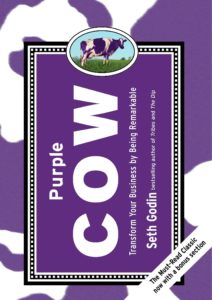
Seth Godin said it best in the Purple Cow. If you drove past the pasture and there was a purple cow, you will most certainly pull the car over and take a picture with it. You would tell all your friends and you post it all over your social media that you saw a purple cow and that you would never ever for the rest of your life forget the purple cow. That’s what I am. I’m a purple cow. Somebody who meets Sean Stephenson, three feet tall and in a wheelchair with the message that he has, they’re not going to forget that. That is a tremendous gift to be able to add something into another human being’s brain at the level of the masses like I’ve been able to do. That is a tremendous gift and I am super grateful for it.
I’m curious if you’re a follower or a fan of Abraham Hicks because we’ve been talking a lot of spiritual concepts here. Is that somebody you resonate with?
Yeah, absolutely. For a long while, I struggled with it. Quite a few people in my life bring it to me. My wife, Mindie, and a couple of people brought Abraham Hicks to my attention and I didn’t feel too comfortable with it at first. My skeptic brain was like, “Is this a channel? Are these really spiritual entities? What is this? Is this that marketing hoax to sell courses? What is it?” I fought it and yet there was also still an element to who I was that was listening to the content. The way I started off was, “Let’s listen to the content whether it’s made up or not. Let’s see if you even agree with the content.” The more I heard the content, the more I was having these bits of like, “I agree with that. That resonates with me. I’ve seen that to be the case. That seems to show up in my life.” I’m a very intuitive person and when something feels right to me, I don’t need a ton of evidence to prove that it’s true. I just know it’s right for me and I go from there. When I came across Abraham Hicks, I was like, “I can deny this all I want, but it’s in alignment with what I believe.”
It is an alignment for sure. I have a similar experience too of being a skeptic at first. It was my wife that brought it to my attention as well. She had been following Abraham for a while before we had met and I’m like, “I don’t know about this stuff. Is it an entity or multiple entities speaking through this woman? She’s selling seminars so she’s making money off this, I don’t know.” Then hearing that content and thinking, “This is really wise. This is insightful.” Then exercising the willing suspension of disbelief and setting my skeptic brain aside and just letting the wisdom in has had a profound impact on me. I’m a huge fan now. Have you been to any of her seminars?
I believe that whatever you resist vehemently, you secretly desire or believe.
I have not, but I listen to her almost every day. My whole adult life, I didn’t believe in past lives. I was raised Catholic and that is almost blasphemy to believe that. I didn’t believe in him. Then I became a Doctor of Clinical Hypnosis where we learned about using timeline therapy and past life regression and I really struggled with those courses with my professor. I would literally challenge him and say, “Prove that this is coming from the past life and not conjured up from the unconscious mind. It’s just a story so that we can get some validation for what we’re feeling.” I remember something he said to me, “Even if it’s just a story and it’s what that person needs to believe to let go of pain, aren’t you willing to let them hold onto that story as if it’s true so they can release their pain?” That opened the door a little bit for me to say, “I will go through it these past life regression sessions, but I’m not going to personally believe in it.” Then I met my wife, Mindie. We had a period of months between our first date and our second date.
Those who hurt, hurt. And those who are healed, heal. Share on XOn our second date, we encountered and we embraced each other physically. I felt this flood of images in my head that I had been with her thousands of times before and yet this was the first time I’d ever physically embraced her. Here I was having all these images and feelings and I remember thinking, “I believe in past lives now.” It was that moment where you go and resist something for years and then a light switch goes on and you’re like, “Why was I resisting this so vividly?” It was oftentimes because deep downside, you secretly knew it to be true. That’s a big component to how I live my life. I personally believe that whatever you resist vehemently, you secretly desire or believe. We see this too often when people are having huge homophobic tendencies. Oftentimes they have their own sexual desires towards the same sex. Whatever it may be when somebody is vehemently against something, it’s because their unconsciousness is secretly desiring it or believing in itself. That’s a little side tangent that I thought would be interesting to share.
A similar concept is that if you’re rejecting or vehemently against something, there’s a part of yourself that you are rejecting too. I’ve heard that multiple times from different thought leaders. There’s a rejected or disowned part of yourself.
Wherever there’s a lot of energy pent-up, there’s a need for exploration. That’s why you’ll say, “Do I need to agree with everything that’s in life where that secretly means I want to do it?” I go, “No. There’s a difference between disagreeing and being vehemently disagreeing and rage disagreeing.” If you see something and you go, “That’s not for me, I don’t agree with that,” that’s probably an alignment, I agree with you. If you are raging against it, there’s something stuck in your blind spot because it’s activating you and that means some part of you is fragmented off and it’s a projection. You are seeing something that is either what you were desiring or you’re afraid you are.
Another way to look at it is it’s part of your life’s work, your mission, your Tikkun in Kabbalic terms, to work through it. We all are born into these issues that we have to face or if we don’t, we have to face it in the next life.
Forgiveness is not the acceptance of what happened but the embracing.
I looked back on my own life and the things that I hated and pushed against strongly when I was younger in my twenties, now I fully embraced and I love. When I was younger, I thought tattoos were ugly and I wanted nothing to do with people that had tattoos. I thought they were a sign of disrespect to the body. I found them trashy and I pushed them away so strongly. Then in my 30s, I got my first tattoo and absolutely loved it and felt so connected to the tribal symbolism on my body. I was like, “How did I go so long hating these things that now I absolutely embrace?” There are multiple examples of that in my life where if there’s something I’m pushing really hard against, I need to wake up and see what’s going on there.
Let’s move into the lightning round mode of this amazing interview. Let’s do short questions and answers for each of these. What’s your recommended approach to meditation? Is it short spurts or is it a long once a day meditation? Is it TM? Is it mindfulness meditation? Labyrinths? What works for you and what do you think works for others?
What works for others is whatever works for others. It’s a part of the journey to find what works for you. What works for me is conscious breathing exercises, specifically Kundalini breathing. Meditation for me would be twenty minutes of the breath of fire, which is in, out, in, out, through the nose. Then at the very end of that twenty minutes holding my breath for as long as I can. It’s fascinating how when you put a lot of oxygen in your brain, you can double what feels like your lung capacity.
When money is flowing, it brings levity. When money is backed up, it brings a heaviness. Share on XThe next question is actually more of a statement that I’ve heard before and I’d love your take on it. Instead of money is the root of all evil or money corrupts and power corrupts absolutely. Instead of those sorts of concepts, I really liked this one, which is money just makes you more of who you already are. It amplifies who you are at your core. What are your thoughts on that?
If you asked me, “Sean, finish the statement, ‘Money is,’” I would say money is an amplifier and that’s exactly it. It reveals your true character. I love giving. I love gifting. I love the experience of contribution. Whether I have $5 to give or $25,000 to give, it brings such joy to me and I believe that money amplifies that in me. I’ve seen people who come across money and it looks like money changed them, but really all it did is reveal them. They didn’t have the amplifier when there wasn’t money to reveal what their true agenda was.
Do you believe it’s possible to redo the past hurts that you have inflicted on others in a way? It takes the pain away or it’s a redo. Even though it happened in the past and you can’t change the past maybe, do you believe that spiritually it’s possible?
Energetically, it is for sure. This is my own opinion and it’s probably from a lot of different studies, but it is that forgiveness is not the acceptance of what happened but the embracing. You don’t truly forgive somebody until you turn to them and say, “Thank you for doing that. It gives me who I am now.” I look back in my past decisions and what it has done to me and what I have done. The way forgiveness took place and cleared the space was when both parties or hopefully both parties were able to be conscious and say, “Thank you for this experience. It completed something for me.” When they take spiritual responsibility on both sides, then the energy is cleared and cleaned because then you look at it, you say, “Thank God that happened. We are way closer now because that happened. I’m way more evolved because that happened. I’m way more grateful, I’m way more present because that happened,” but as long as somebody’s not willing to come responsibly to the table and say, “Thank you for the experience. It’s what I wanted and needed,” then spiritually, it doesn’t clear in my opinion.
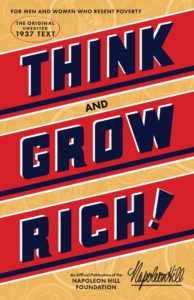
You alluded to this already that there’s some content in Napoleon Hill’s book, Think and Grow Rich, around the sexual transmutation is what he refers to it as. There’s a whole chapter on it in fact. What has been the most profound impact of those teachings of Napoleon Hill’s in your life? That whole concept of sexual transmutation, how has that impacted you? If you could share one powerful thing that’s changed your life?
Kundalini breathing is my meditation and energy work in terms of flowing energy sexually with my spouse. I’ve seen it impact our finances because you’re not holding on blocks. You’re using the body for what it is, which is an amplifier like money and it’s allowing healing of past hurts. There’s an alchemy that takes place within us if we’re willing to do the internal work. I’ve become a big believer in Napoleon Hill and Wallace Wattles, The Science of Getting Rich. I know that when you are able to flow energy using the body, it shows up in your bank. It shows up and brings things to the reality that you didn’t think were possible. I’m very fascinated with these bodies that we live in and how they’re more than just meat suits. They are like antennas that can raise the frequency and lower frequency and bring toward as our dreams or nightmares. I find that to be one of the greatest studies of my own life.
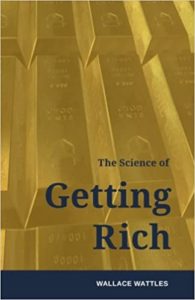
That’s a brilliant bit of wisdom there. Thank you so much, Sean, for sharing all these insights, learnings and bits of wisdom with us in this episode. Where can I send the audience to learn more and to potentially work with you, hire you if you’re available? Where should they go?
First thing is if they want to work with me personally and have questions, I’m happy to give out my email address. [email protected] would be the way that they can reach out to me personally.
Your book is a great way to start to learn from you. That’s called Get Off Your “But” and available on Amazon and everywhere books are sold. You probably have quite a lot of content of your speeches forth on YouTube as well, I’m guessing?
Yes, absolutely. I’ve gotten really big into Instagram Stories, which are daily stories that I put out. My Instagram handle is @3FootGiant and people can follow me daily there if they so choose. That would probably be the best way for them to stay in touch with that email and follow me on Instagram.
I’m sure you’re inspired to now make a difference even more in the world and with the people that you care about. See what you can do to share this with others and spread the word. Thanks.
Important Links
- Dr. Sean Stephenson
- Youtube – Dr. Sean Stephenson
- Instagram – Dr. Sean Stephenson
- Lucra
- Facebook – Lucra
- Instagram – Lucra
- Youtube – Lucra
- [email protected]
- Get Off Your “But”
- Purple Cow
- Think and Grow Rich
- The Science of Getting Rich
Your Checklist of Actions to Take











About Dr. Sean Stephenson
 Dr. Sean Stephenson was predicted not to survive at birth because of a rare bone disorder that stunted his growth and caused his bones to be extremely fragile causing him to fracture over 200 times by the age of 18. Despite his challenges, he took a stand for a quality of life that has inspired millions of people around the world.
Dr. Sean Stephenson was predicted not to survive at birth because of a rare bone disorder that stunted his growth and caused his bones to be extremely fragile causing him to fracture over 200 times by the age of 18. Despite his challenges, he took a stand for a quality of life that has inspired millions of people around the world.
Over the past 24 years, his powerful message has been heard at live events in nearly all 50 states and in 16 countries. Sean has presented at hospitals, universities, prisons, and to companies such as Nike, Whole Foods, Zappos, Walmart, and Sharp Healthcare. He’s shared the stage with U.S. Presidents, billionaire business moguls, celebrities, and his Holiness the 14th Dalai Lama.
Sean has appeared on everything from The Oprah Show to Jimmy Kimmel, in addition to online videos with tens of millions of views. The Biography Channel produced an hour-long feature on his life called, Three Foot Giant. His international best-selling book, Get Off Your “But” has been translated into over a dozen different languages.
Sean held a degree in Political Science and a doctorate in Clinical Hypnosis, along with being a board-certified therapist. Originally from Chicago, Sean, along with his wife and business partner, Mindie Kniss, resided in Scottsdale, AZ for the last decade of his life.







Leave a Reply